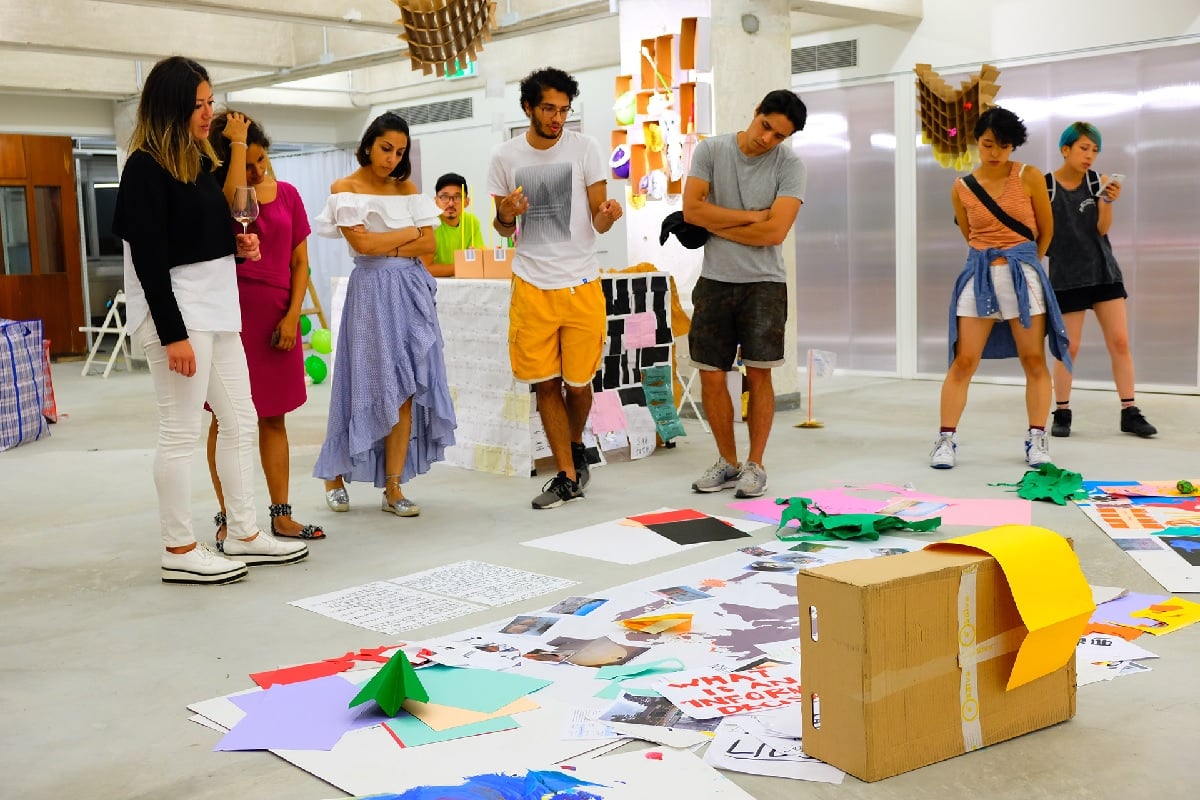
Better information about creative workforces is needed to protect the industries globally
Photo: Global Art Practice
Call for global collaboration to protect creative industries
The creative and cultural sectors must not be treated as a policy "outlier" if they are to help meet global challenges.
The cultural and creative sectors cannot be treated as policy outliers if they are to protect livelihoods and address global issues like climate change, an international conference has heard.
Investment in digital infrastructure, policies to promote innovative business models, and better coordinated data collection are crucial to the success of creative sectors, according to the Creative Policy and Evidence Centre's (PEC) new Global Agenda.
Presenting to the World Conference on Creative Economy in Dubai on Tuesday (December 8), PEC Head of Policy Eliza Easton said the "heft and needs of the sector" must be brought to policymakers' attention.
READ MORE:
- Covid-19 and the global cultural and creative sector
- UK languishes on 'best country for creativity' list
"Wherever you are in the world the economic and social value of the creative and cultural sector is downplayed," she said.
"We knew from the very beginning that there was no point in thinking about issues relating to the cultural and creative industries from only a national context. As the agenda we are launching today sets out, the creative and cultural industries must be better understood and supported at the international level should we want to reach the United Nations sustainable development goals."
Its 11 tenets aim to address 13 of the UN's 17 goals by aligning nations' approach to employment, research, and digital development across the global creative industries.
International policy leaders must take these ideas into the mainstream, it says.
"Otherwise, not only do we risk losing creative communities across the world, but we lose a broader opportunity to tackle the most significant global issues of our time, from wealth redistribution to climate change."
Created in partnership with representatives in 18 countries, the British Council and the Arts and Humanities Research Council (AHRC) over the past two years, the document is a step towards ensuring the sectors can "grow and flourish" amid the challenges of the 21st Century, AHRC Executive Director Professor Christopher Smith said.
Informal economy
More assistance is needed for creative workers in less stable careers, particularly outside of Europe and North America, PEC says.
Creative industries are the fastest growing and most dynamic in the "global south" of Latin America, Asia, Africa and Oceania, but are not always counted as part of their nations' economies.
Easton said workers in these industries are often not registered as workers at all.
"If we want to lift people out of poverty and to promote equality then no strategy can continue to ignore these individuals, whether the person in question might be an unregistered designer in Thailand or a freelance craftsman in the UK."
International collaboration could encourage more "imaginative" social impact investing and spur new types of cultural production.
To achieve this, the agenda says national and multinational agencies must collect workforce data that recognises unregistered and unregulated labour.
"Informal creativity should neither be dismissed as a marginal survival strategy nor romanticised as a community answer that absolves the state of its proper responsibilities."
Strength from scale
The agenda says "now is the time to act" to take advantage of new business models in the sector and opportunities like artificial intelligence and environmentally conscious design.
Equal access to digital skills development has become "at least as important as new buildings" in the creative industries, and the sector should be involved in creating regulatory frameworks for privacy, intellectual property and online activity.
"Whilst we recognise the differences between national needs and systems, there are still important improvements to be made globally, such as in the area of streaming and international trade of digital services," the agenda says.
Easton said the sector will need such support to contribute to solving poverty, inequality and climate change.
Acknowledging that industries like fashion are currently big polluters, she said they are also suggesting some of the most innovative solutions.
"The arts, film sector, advertising, games and other sub-sectors all have both a big challenge ahead in getting to net-zero themselves but also will play a role in challenging individuals and policymakers to do the same."
Join the Discussion
You must be logged in to post a comment.